Chemistry News
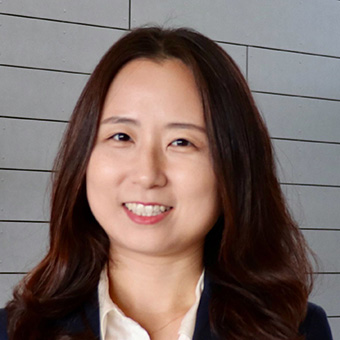
Four Chemists Receive 2025 Marion Milligan Mason Award
2025 Marion Milligan Mason Awardees
Grace Han, Ph.D., is an assistant professor at Brandeis University in the Department of Chemistry. Her group has specialized in designing novel photoswitches for molecular solar thermal energy storage that operate in condensed solid or liquid phases, moving forward an alternative and renewable heat source.
2024's New Class of DEIS Scholars Shares Their Early Brandeis Experiences
Nazir Danyal Khan
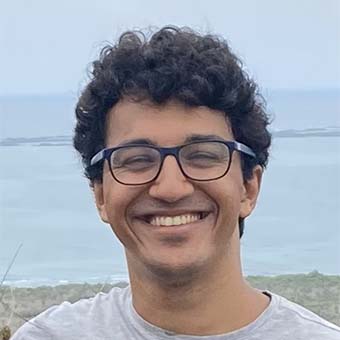
Nazir is a first-year student in the Chemistry PhD program.
Academic Focus: Physical chemistry
What attracted me to Brandeis: I really liked the work that was being done here, but meeting the professors and grad students during visiting weekend cemented it: they were very kind, helpful and passionate about their work.
Something I’ve enjoyed here so far: The people and the breadth of the research in the group I'm in
Something that surprised me: The outreach: people are way more proactive about offering help and working together than I would have expected. Also how much of a calf workout it is to walk around campus.
What I hope to do after graduation: I'd like to continue working in physical chemistry, ideally on method development or simulation (either in industry or academia), but my pipe dream is to create a sugar substitute that's actually suitable for baking with.
GSAS Students Discover New Possibilities Through Internships
Zhaoxi Zheng, PhD’24 in Chemistry, Indium Corporation
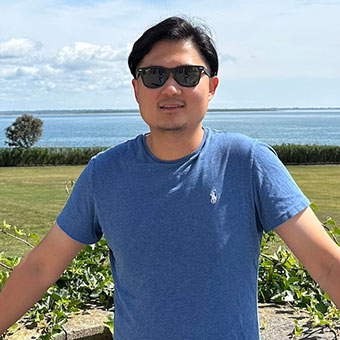 Zhaoxi Zheng, who graduated with his PhD in Chemistry in August of 2024, interned with Indium Corporation in the fall of 2023. The company creates innovative thermal interface materials for electronics, and Zheng worked on a project to develop nanofabrics that could transfer heat efficiently. “We tried many different things and all kinds of tests of nanofabrics,” he said. “I was there only three months, but I was still able to make some prototypes and start to show that the direction was correct. It was quite meaningful to be involved in developing a new project from scratch. The team was very supportive, and I learned a lot about how industry tackles things and solves problems.”
Zhaoxi Zheng, who graduated with his PhD in Chemistry in August of 2024, interned with Indium Corporation in the fall of 2023. The company creates innovative thermal interface materials for electronics, and Zheng worked on a project to develop nanofabrics that could transfer heat efficiently. “We tried many different things and all kinds of tests of nanofabrics,” he said. “I was there only three months, but I was still able to make some prototypes and start to show that the direction was correct. It was quite meaningful to be involved in developing a new project from scratch. The team was very supportive, and I learned a lot about how industry tackles things and solves problems.”
Zheng, who found his internship through LinkedIn, found that mindset was especially important to internship success. “I didn’t use much of my existing expertise because I typically use different techniques, but the mindset I learned in the PhD can be transferred to other techniques – what’s important is how I approach a problem,” he said. “Technical skills can always be trained. The mindset of doing science or research needs to be learned over time in the PhD and the lab.” Working in industry also helped him learn new norms. “In an industry environment, you are forced to learn new things by yourself,” he said. “There’s mentorship, but your manager can’t always be watching you, so you need to work by yourself and solve problems. Especially when hiring a PhD student, they want someone who has good problem-solving and communication skills across the team. I communicated with my boss almost every day about how the project was going and what we should do next. Teamwork and communication are always the most important things in industry.”
The internship experience also helped Zheng consider new possibilities for his future. “It made me realize that I do not want to limit myself to only the techniques I use now,” he said. “I realized that I have a lot of possibilities out there, and, with this experience, I proved to myself that I can do different things, that I am a quick learner, and that I can adapt to new environments.” When offering his advice, Zheng said, “If you really want to pursue an industry career, I highly recommend an internship or co-op when you have the chance. Don’t be afraid of making mistakes – before you come, you know nothing, so it’s common to make mistakes at first. Your expertise might be valuable, but it’s most important you’re a team player and that you communicate well about the work. You will learn a lot about workplace dynamics that you can’t learn in a PhD program.”
Bing Xu appointed Charles A. Breskin Chair in Organic Chemistry
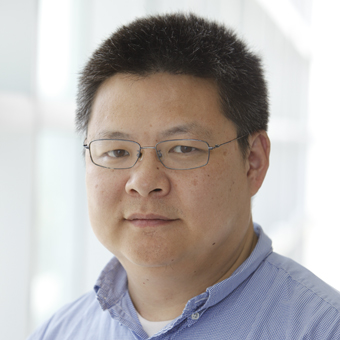 The Dean of Arts and Sciences has appointed Bing Xu as the Charles A. Breskin Chair in Organic Chemistry. This appointment recognizes the Xu lab's innovative and productive scholarly record as well as Bing's broader contributions to the Brandeis community.
The Dean of Arts and Sciences has appointed Bing Xu as the Charles A. Breskin Chair in Organic Chemistry. This appointment recognizes the Xu lab's innovative and productive scholarly record as well as Bing's broader contributions to the Brandeis community.
The Breskin Chair was established in 1966 with the proceeds of a Petrochemical Industry dinner at which Charles Breskin was inducted as a Brandeis Fellow. Barry Snider is the most recent incumbent of this position and was appointed in 1998.
Geeking Out With...Abichael Belizaire
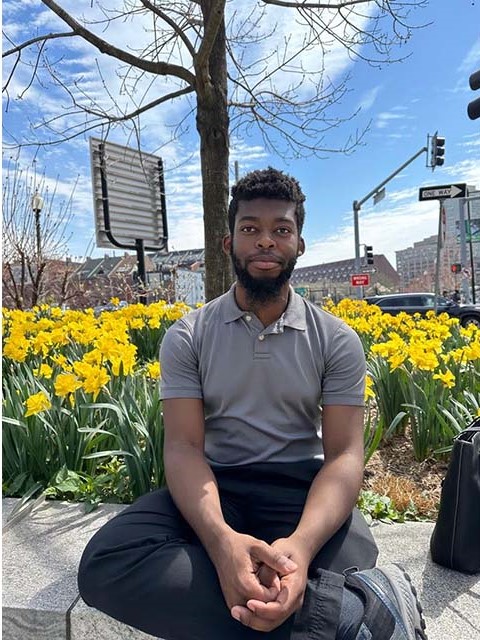 Abichael Belizaire is a first-year PhD student in Chemistry. He plans to research how the properties of quantum dots change when they are in solution, especially if they display “blinking.” He joined Geeking Out With… to discuss his quest to find hobbies that help him maintain work-life balance.
Abichael Belizaire is a first-year PhD student in Chemistry. He plans to research how the properties of quantum dots change when they are in solution, especially if they display “blinking.” He joined Geeking Out With… to discuss his quest to find hobbies that help him maintain work-life balance.
Chi Ting receives a NSF Career award
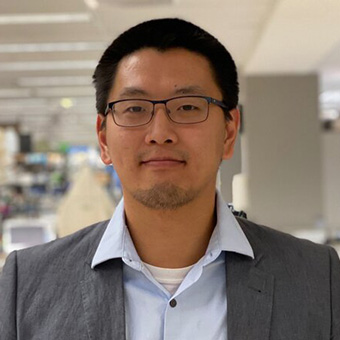 CAREER: Chemoenzymatic Synthesis of Complex Polycyclic Alkaloids Enabled by a-Ketoglutarate Dependent Iron Enzymes
CAREER: Chemoenzymatic Synthesis of Complex Polycyclic Alkaloids Enabled by a-Ketoglutarate Dependent Iron Enzymes
From morphine to quinine, polycyclic alkaloids possess remarkable bioactivity and complex molecular structure. With this CAREER award, the Ting group will apply enzyme catalysis to the synthesis of bioactive alkaloid natural products. Enzymes are highly efficient, renewable biocatalysts that can enable the concise synthesis of complex molecules. Specifically, non-heme iron enzymes catalyze a plethora of novel reactions, some of which are unprecedented in chemical synthesis. Two types of enzymatic reactions that will be studied during the award period are C-H endoperoxidation and C-H halogenation. Towards the first goal, the Ting group's chemoenzymatic approach was successful in the chemoenzymatic synthesis of 13-oxoverruculogen, an anticancer peroxide. Using enzyme catalysis, the eight-membered endoperoxide of verruculogens were assembled in a single step. This strategy will allow for the preparation of other endoperoxide analogs in the search for new anticancer compounds. By combining biocatalysis with modern synthetic methods, this chemoenzymatic approach aims to enable efficient synthesis of these natural products.
In addition to the research aims, the broader impact of this award is to teach natural product chemistry to local middle schoolers in Waltham, MA. The group's outreach program introduces the structure of organic molecules to students through group activities with the goal of inspiring them to pursue STEM careers in the future.
Dr. Sue Pochapsky retires from the NMR Facility
On December 31, 2023, Dr. Sue Pochapsky retired as the Director of the Brandeis Nuclear Magnetic Resonance (NMR) Facility. Dr. Pochapsky started at Brandeis during the summer of 2014. In the past 10 years, she worked hard to m
The new NMR Facility Director is Dr. Brian Michael. Dr. Michael received his PhD in Chemistry from MIT. His expertise lies in the area of solid state NMR and time-dependent quantum mechanics.
Prof. Shulenberger receives grant through the ACS Green Initiatives
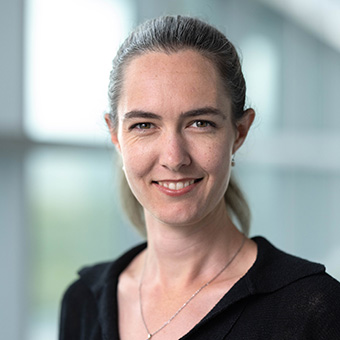 Katherine Shulenberger, Assistant Professor of Chemistry, has received a ACS Green Chemistry Initiative ECP-Faculty Bridge Grant. The title of her grant proposal was "Heavy Metal-Free Nanocrystals for Clean Energy Generation".
Katherine Shulenberger, Assistant Professor of Chemistry, has received a ACS Green Chemistry Initiative ECP-Faculty Bridge Grant. The title of her grant proposal was "Heavy Metal-Free Nanocrystals for Clean Energy Generation".
The Shulenberger group will be using this grant for the following research:
The development of materials for renewable energy generation is of the utmost importance in addressing current environmental challenges facing our society. Semiconductor nanocrystals show promise in addressing this challenge. However, current state of the art materials for both photovoltaic and photocatalytic applications suffer from drawbacks such as the use of toxic or scarce metals. Therefore, there is a need to both develop and understand earth abundant and nontoxic nanocrystal materials. In the Shulenberger lab we develop and adapt optical characterization techniques that can unravel the properties of nanocrystal films in device-relevant environments. We utilize both single-particle correlation measurements and ultrafast optical characterization to bridge the gap between existing ensemble and single-particle techniques. We apply these strategies to understand fundamental material properties of nanocrystals derived from sustainable materials.
Brandeis installs new 400 MHz NMR
Professor Isaac Krauss received funding from NIH (1S10OD034395) to purchase a new 400 MHz NMR. This Bruker Avance NEO 400 has been in house in the basement of Edison-Lecks since February 2024. It is equipped with a broadband heteronuclear probe with improved sensitivity over our previous 400 MHz instruments and features automated tuning, variable temperature capabilities over a wide temperature range, and fully automated sample acquisition with a 24-position autosampler.